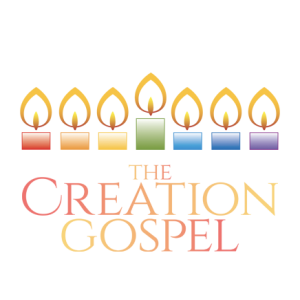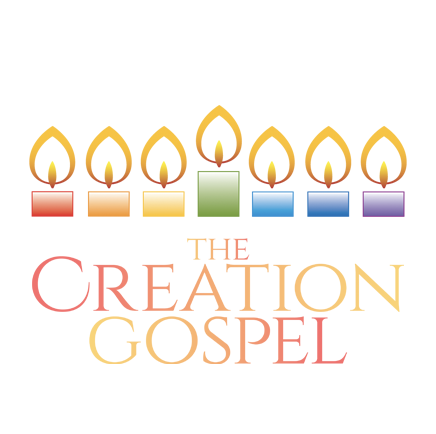Episodes

Monday Nov 27, 2023
Monday Nov 27, 2023
In last week's newsletter, we reviewed the essential understanding of the red beast, Esau (Edom is from adom, red), or The Red One, as he came to be called within Jewish literature. The Red One holds a place of special concern during the Chanukkah season because of the Seven Shepherds and Eighth Prince prophesied to deliver Israel from invading enemies.
In The Seven Shepherds: Hanukkah in Prophecy, I demonstrated how we can use Yeshua's template concerning celebrations like Chanukkah and even learn prophecy, especially expectations concerning The Red One. What helps as well is to understand the history of Israel and the Temple that lends insight to the First Century Jewish mindset. In this case, the month of Kislev, or the Ninth Month, is one in which the Greeks installed an abomination that causes desolation idol on the 15th of Kislev and offered sacrifices to the abomination on the 25th of Kislev.
Once the Greeks were driven off, the Temple precincts were purified from the abomination, the Temple was rededicated to holy worship on the 25th of Kislev in an eight-day celebration. The eight days of celebration and re-dedication commemorated a missed festival of Sukkot due to the abomination. In effect, it became a "Sukkot sheni," or second Sukkot, a "makeup" permission established in the Torah when a festival was missed due to uncleanness or being absent from the place of celebration.
By the time of Yeshua, the Greeks, who were the third beast kingdom, had been replaced by Rome, the fourth beast kingdom. Rome was thought to be descended from Esau, and was called Edom, The Red One. First Century Jerusalem and the Temple Mount were controlled by the Romans politically and militarily. Jews of the First Century were looking for the fulfillment of the prophecy of the Seven Shepherds and Eight Princes who would be raised up to defeat Edom. This is why at the Feast of Dedication (Chanukkah) in winter, Yeshua was asked whether he was the Messiah or not. If so, then they wanted him to declare himself, raise up his kingdom, and overthrow The Red One.
When Yeshua answers by talking about sheep, it is not a rambling, random answer. It is rooted in the Jewish expectation of The Seven Shepherds, and very precise. The problem was that no one wanted to hear the answer, which was that there were many other sheep who would have to be gathered first. The gathering would take a long time, and the scarlet beast would not be completely overthrown until Yeshua gathered them. Like most of us, the listeners didn't want to hear that answer. Our mindset is: Destroy all evil right now!
What follows is an additional section of The Seven Shepherds:
In the New Testament, there is only one other mention of “winter” other than the mention of Yeshua walking in the Temple at the Feast of Dedication, Chanukkah. Words means things, and so does their placement. The winter celebration of Chanukkah was significant in its placement in the Book of John, not random. Likewise, the other mention of winter in Matthew adds more context to the apocalyptic Jewish expectations of Messiah.
- Therefore, when you see the ABOMINATION OF DESOLATION which was spoken of through Daniel the prophet, standing in the holy place (let the reader understand), then those who are in Judea must flee to the mountains…But pray that your flight will not be in the winter, or on a Sabbath.
There are two times that Yeshua doesn’t want his sheep to take flight: winter or Shabbat. The Jewish liturgy gives the rationale. Every Shabbat, the Torah, the covenant Word of God, is removed from the ark and held up for the congregation to see. The congregation responds with these words initiated by Moses:
- Arise, O Lord, and let Your enemies be scattered; and let them who hate You flee from You. From for Zion will forth the Torah, and the Word of the LORD from Jerusalem. Blessed be He, Who in His holiness gave His Torah to His people Israel.
Those who flee and scatter from the Holy One on Shabbat are His enemies! Shabbat is the Waterloo of spiritual battles, for it is the eternal sign of betrothal between the Holy One and Israel. The wicked are destined to scatter on a great Shabbat to come.
Why not flee in winter? The only significant date in winter is Chanukkah. The synagogue liturgy reinforces the apocalyptic nature of the feast:
- Bare Your holy arm and hasten the end for salvation - Avenge the vengeance of Your servant's blood from the wicked nation. For the triumph is too long delayed for us, and there is no end to days of evil, repel the Red One in the nethermost shadow and establish for us the seven shepherds.
The siddur explains the key players of the Chanukkah liturgy: "The Red One (Admon) refers to Esau/Edom, whose descendants brought the current exile. The seven shepherds of Micah 5:4 will conquer Israel’s oppressors.” (Scherman, p. 832) Yeshua did not want his sheep to be scattered on Chanukkah, for it would mean that they were running from him, the Shepherd Prince!
...to be continued!
Please SUBSCRIBE to our newsletter to get new teachings.


No comments yet. Be the first to say something!